#the new robber barons
Explore tagged Tumblr posts
Link
#facebook#Mark Zuckerberg#elon musk#Jeff Bezos#bill gates#billionaires#US billionaire#forsakebook#suckerberg#capitalism gone wrong#delete facebook#delete social media#the new robber barons
33 notes
·
View notes
Text
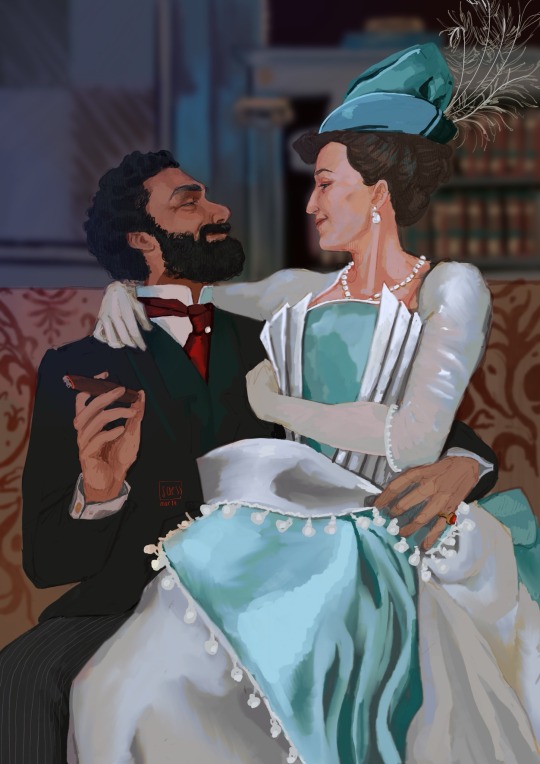
We're settled where we should be.
Bertha & George Russell in Never The New, episode 1 of The Gilded Age
#my art#the gilded age#tga#bertha russell#george russell#bertha x george#artists on tumblr#fanart#digital art#procreate#screenshot redraw#i love them so much they make me insane#i've watched their introduction scene a normal amount of times#someone help me find an otp tag for them#anyway the robber baron and his ruthless wife are conquering new york (and my heart) and they're batshit insane#here's to more doodles with them bc these actors are too hot#the gilded age fanart#otp: useless each without the other
204 notes
·
View notes
Text
After s1, for a not insignificant amount of time I thought about how PnZ could implement a hextech rail system. I know it's one city-state and they don't even really have public transportation except like some elevators and a kind of tram car between the Topside and Zaun, but I don't care!
I liked trains too much growing up to not think all those airships are an inefficient means to do trade, and that includes with the Hexgates. Sure once the shipment arrives in Piltover an airship can fast jump in seconds to its destination through the Hexgates, but the supplies have to make it TO the Hexgates first, and then travel back at a normal speed. And on top that they're still sending AIRSHIPS. Those airships can't carry nearly the same amount of cargo as a train can in one go.
Of course all of this literally doesn't matter in the slightest bit to the show, it's just something that captures me because Piltover's supposed to be steampunk... but it's got no trains. Blimps, hot air balloons, and the like captured the imagination of many in the era that inspired the genre, but trains and railway expansion were literally a key innovation that defined it.
I still think about the implications of a Hexrail Terminal. The first regions that would let Piltover set down tracks in for intercontinental system. The new cities that would spring up in junctions. The tracks would runes carved at specific checkpoints to accelerate and decelerate for specific routes. The trains themselves would be fitted with large hexstones that would act like bullet trains in reaction to the runes on the tracks.
And of course there's also train culture related stuff. The PnZ equivalent to The Music Man's opening song, Murder on the Shuriman Express, Hexrail robberies, and Silco diversifying his portfolio as not just a chembaron but a robber baron too!
#arcane#piltover#zaun#arcane ramble#I'm pretty sure league writers used chembaron to substitute for robber baron honestly#the name is supposed to be burn on the fact those guys were new money and thus their status was “illegitimate” to old money#personally that's not what I'd be hung up on#thinking about a train system kind of helped me put into perspective how jayce and Viktor's dream of giving#“hextech to the people” was flawed from conception#in the show hextech had largely been implemented in centralized ways from the hexgates to hexgems#it wasn't free and open for public use it was heavily controlled and even the distribution of hexgems still required the expertise#of two scientists in all of piltover to create and it can only be used with specially crafted tools#meanwhile anyone can use chemtech in zaun#it seems to be highly replicable and is in wide use across the population
2 notes
·
View notes
Note
Halt, Orion! This is an agent from Alternian Central Patrol. We notice that your trashed, ruined ship does not comply with Imperial Code 477-XX-D, Flight declaration for Non-Imperious Cruisers. Please provide all documentation to the approaching drone for assessment. License and registration. Your compliance is noted.

"Fuckin' perfect. JUST what I needed... bureaucratic nightmares on alien fuckin' planets. I've seen how self-described "Imperial" types look at me enough t' know they ain't gonna be takin' an alien presence lightly..."
It stops muttering just long enough to take a step back with a scowl.

"Prove t' me ya won't go holdin' my shit 'til I submit to Alternian Rule or whatever n' I'll CONSIDER cooperatin'. 'M all for peace n' love n' interspecies co-operation n' shit, but I'm not about t' get punkt by some high n' mighty tyrants, either."
#Displaced Iconoclast [guest muse: orion]#asoldhfosai thank you for this xD#it has toppled enough robber barons and gang leaders and hate groups to know that anyone described as 'Imperial' is bad news aosdjfna
2 notes
·
View notes
Text
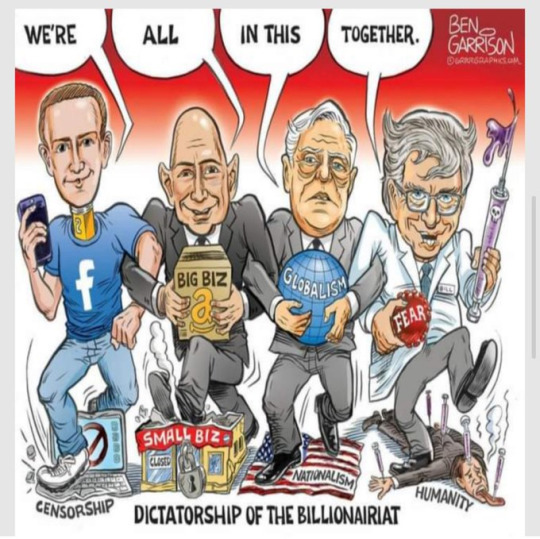
4 notes
·
View notes
Text


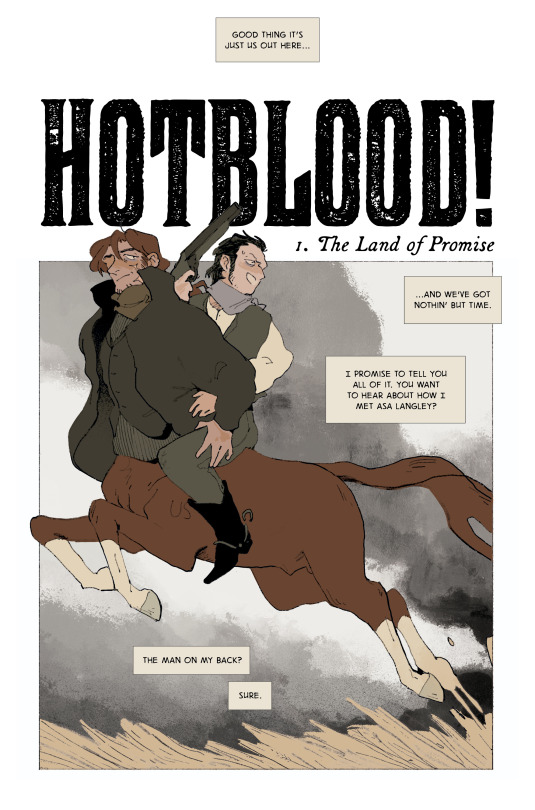


HOTBLOOD! VOL. 1: THE LAND OF PROMISE SEPTEMBER 9, 2025
In the red days of the West, centaurs and humans coexist. The year is 1871 and centaur Evander Rook finds himself at rock bottom, working for would-be robber baron Asa Langley–a human! As the unlikely pair get closer, Rook finds himself caught up in Asa's ambitions and they are both forced to reckon with the ghosts of their interwoven pasts.
➔ PREORDER
FAQ
How is the Mad Cave edition different from the 2016 Kickstarter omnibus? The Mad Cave edition is totally different (night and day, sun and moon) from what was printed for the 2016 Kickstarter – the script was rewritten, every page was redrawn, and even the trim size has changed. Vol. 1 is a reboot of the omnibus, while Vol. 2 covers Zarco and Vols. 3 and 4 will be all-new material!
Will the Mad Cave edition be published internationally, or possible to order internationally? This is really important to me! I’m making moves to have it localized––my agent has a lot of experience in this area––but Mad Cave has world rights and it’s ultimately up to them. In the interim, it should be possible to order the US edition internationally because it will be distributed through mainstream channels via Simon&Schuster (Amazon, B&N, Bookshop.org, etc).
You can follow me for further updates on bsky.
The new comic has already been called “postmodernist,” “cinematic,” “breathtaking,” and “a generational achievement” so I really hope you check it out!!
Thank you!
1K notes
·
View notes
Text




Marmalade (2024): making art for set dressing
Two years ago, I got an email from Kiwi Smith (the writer of the comic series, MISFIT CITY, that I illustrated for BOOM!). She introduced me to the actor, writer, and director Keir O'Donnell who was in need of some sketches for an upcoming film of his. The request? Sketchbook pages from the hand of Otis (Aldis Hodge) as he sketches and takes notes on the mysterious Marmalade, the bank-robber and love interest of his prison cell-mate Baron (Joe Keery).


I'd never done something like this before, but his prop master was pretty straight-forward with what they needed. Ultimately, I only had to draw two pages of new sketches specifically of Marmalade-specific content. The rest of it consists of old sketches I'd already worked up over time (some of which you may recognize from past sketch dumps).
The goal was to make them look like real pen, ink, and pencil so I had to get creative in Clip Studio. I gave them the sketches mostly separated so they could cut, paste, and arrange them in the prop as they needed. They merged some, omitted others, and the end result looks amazing to me. Never thought I'd get to see Joe Keery tenderly brushing his fingers against my art, but here we are.
What's funnier is how many of the extra sketches I included were sketches of my OCs and D&D characters. Since Aldis Hodge had to pretend to be the one drawing these, I hope he liked the material!
Either way, it was so fun watching this movie with my friends and cheering like it was a contact sport whenever my art showed up LOL. Always grateful to have pals who are excited to gas me up.
For more sketches, check out my Patreon where I've shared these and more for free, open access!
463 notes
·
View notes
Text
youtube
12 minute YouTube video. President Biden warns of a Tech Bros Oligarchy, the erosion of democracy, a new gilded age, robber Barons having an office in the Capitol, and calls for SCOTUS term limits.
#msnbc#Presidential Biden’s Farewell Address#tech bros oligarchy#new gilded age#calls for SCOTUS term limits#erosion of democracy#musk bezos zuckerburg Altman#republican assholes#maga morons#crooked donald#traitor trump#corporate greed#the oligarchy has arrived#Youtube
242 notes
·
View notes
Video
youtube
Bezos and Musk Vs. Workers
Two of the world’s richest men want to end unions once and for all.
Musk’s SpaceX and Bezos’ Amazon are both arguing in court that the National Labor Relations Board is unconstitutional on the grounds that it combines judicial and executive functions.
The NLRB is the agency that supervises union organizing and collective bargaining as established by the National Labor Relations Act of 1935 — a cornerstone of FDR’s New Deal that guarantees the right of workers to organize. It is, in effect, the referee of labor management relations.
If Bezos and Musk get their way, two of the richest people in the world will have gutted the enforcement of labor laws designed to protect the right of average workers to unionize. Corporations could fire employees who try to organize, without any repercussions. It could also be a death knell to unions that already exist.
Corporate giants Starbucks and Trader Joe’s have similarly advanced their own legal arguments echoing the same anti-union, anti-worker sentiment. So much for being “progressive” companies, huh?
Beyond their copycat legal arguments, what do all of these corporations have in common? A history of bashing unions and preventing workers from exercising their right to organize.
The NLRB has charged these companies with hundreds of violations of workers’ rights. They’ve fired pro-union workers, retaliated against organizers by cutting their hours, closed stores that tried to unionize, denied benefits being provided to non-union workers, and refused to bargain. And now Musk and Bezos are even going after the referees — the NLRB— so unions and workers don’t stand a chance.
It’s not the first time their argument has been trotted out by robber barons. A similar case made its way to the Supreme Court way back in 1937. The opinion in that case upheld the NLRB and its decision to punish steel barons who fired workers who tried to organize a union.
Modern-day robber barons Bezos and Musk are hoping today’s Supreme Court will reverse its 1937 ruling and return America to a time before workers had a referee to ensure their rights.
Evidently, it’s not enough for Bezos and Musk to amass more wealth than any two people on the planet. No, they want even more wealth and covet even more power — and don’t want to share it with their workers.
You see, unions are one of the greatest champions of equality. And unions don’t just help unionized workers — they help all workers. There’s a ripple effect that occurs when workers organize: Non-union workers often receive the benefits of higher wages and safer working conditions fought for by organized labor. Unions also play a political role: They provide countervailing power to the overwhelming political power of giant corporations.
We will all suffer if unions are not there to have the backs of workers.
Now these cases may take a while to snake their way through the courts.
In the meantime, please share this video. These corporations win this fight only if the public doesn’t know what’s happening.
And support your local unions. When they go on strike, join a picket line. Better yet, join a union if you can.
We all need to voice our support for organized labor now more than ever.
399 notes
·
View notes
Text
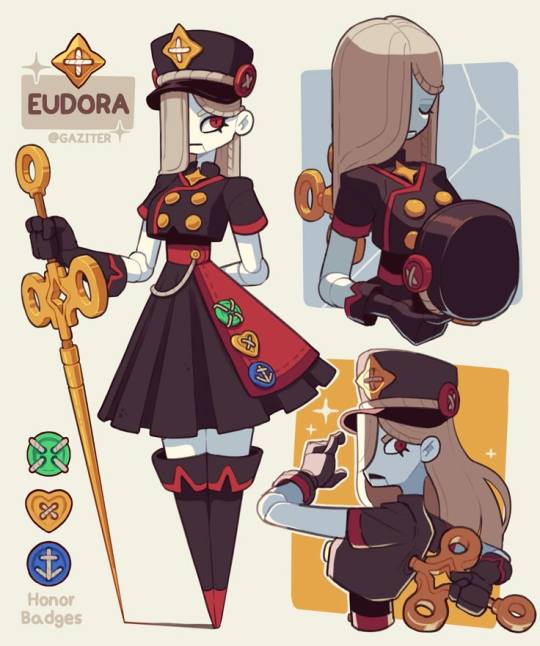
I had a lot of trouble writing her story but i hope you'll like it, i'm not satisfied with some part of the story so it will maybe change in the future.
As always, i'm open to critics and tips, if you want to request anything in particular, be my guest !
Credits to @gaziter on twitter for the image, i do not own it.
Massive change n°1, i asked some people and got advice on what to change, i'm making changes to eudora's role and personnality
------------------------------------------------------------------------------
Archived information about ‘‘Eudora’’, the Train Driver
-Experiment 1448 alias ‘‘Eudora’’ was created in 1993 to serve as the train driver of the Game Station to put groups of children and adults on it to drive them around the factory and be the commander of a unit dedicated to logistics in order to deliver equipments to the needed department of the factory.
-She measure 1m60 or 5,2ft in height, her body is almost entirely made of wood while small amount of porcelain were used for her eyes while her hair is a hybrid of yarn and silk giving it a solid yet soft texture.
-Like Baron Bon-Bon she is reluctant to inflict violence but this is due to her traumatic past rather than a side effect of the procedure (although this comes into play as well) however she managed to work through her guilt and fears and is now dedicated to protecting other toys.
Early life:
-Clara cindram grew up in a loving family in a calm neighborhood, her family was known for being the cliché perfect family, this shaped her into an adorable yet slightly timid girl who enjoyed the company of plushies and toys rather than other children. She was doing good at school, her friends liked her and her family loved her with all theirs heart yet this all changed one day.
-One night a robber broke into the house and was taken by surprise by her father who fought with the robber until he was shot which woke up her mother and Clara, both of them were horrified by the scene and were taken hostage by the robber.
-The police was quick to arrive on the scene, and panicking, the robber took Clara’s mother as a prisoner and shot her in an attempt to dissuade the police from advancing on the house instead the robber was taken out by a sniper and Clara was quickly taken by the police and the ambulance.
-Shocked and traumatized after the long and grueling ordeal she was sent to the orphanage of Playcare due to having no known relatives to take care of her, this new environment was difficult to adapt to and the other children made it tough for her.
-She was seen as a crybaby and an easy target for bullies who wanted to take her money, toys or even lunch for themselves. Her only true friend was Thomas Freuer, an older child at Playcare who took care of her and was the only one to calm her down during her numerous breakdown, nightmare or other PTSD induced traumatic episode.
-While at Playcare she would often visit the Game Station with Thomas and would even befriend the Baron who took the girl under his “protection” by often looking after her or offering one of the best reward in the “Treasure Hunt” which was a brass compass.
-She was also in need of extensive psychological treatment due to the memory of the robbery giving her frequent and intense night terrors, psychological breakdowns and severe PTSD, while none of the psychiatrists managed to cure her, she did manage to have less-frequent nightmare and played with other children more often thanks to the encouragement of the counselors.
PROCEDURE:
-She was supposed to be taken for the procedure but Thomas stopped the scientists and offered himself to the utter shock and puzzlement of the staff who was stunned as this was the first time someone volunteered for the procedure.
-His noble sacrifice ended up being for nothing because 3 month later Clara was taken because the scientist wanted to use her to make a Train Driver (because the higher-ups needed a dedicated team to be used as logistics expert) while the counselors were sad to see such a smart child leave the orphanage (some were glad to not have to deal with her mental issues anymore) .
-Her intelligence was a trait of hers which was highly sought after and hoped to be amplified in order to make her a skilled Driver and commander to run the train like a well-oiled machine.
-Her procedure was a success due to the simple materials and her body structure, she could use a mix of meat consumption and rewind mechanism to keep functioning however it took a long time for her to get used to her new body as she kept screaming for her parents or crying for hours at a time, sometime complaining about her lack of lungs to breath or the intense phantom pain she was experiencing.
-After two weeks of constant breakdowns she was forced out of her state by Harley Sawyer and his threats of violence on her if she didn’t start to work.
-Despite the threats she took her training as a Train Driver while being constantly threatened to work better or face the consequences with remarkable speed and serious.
-Harley noted that electric shocks were the best to pull her out of her fragile state and force her to obey the scientists, starvation was also used while rumors of limbs removal also appeared (rumors claimed a random limbs would be chosen and taken then replaced if she didn’t obey although said rumors were denied by Harley Sawyer).
Work for Playtime.Co:
-Her training was rather easy thanks to her understanding instructions rather quickly and efficiently, she was also given some combat training as her rewind key was sharp enough to act as an estoc, she was a very precise and quick fighter with a lot of dexterity.
-She was assigned to the train of the Game Station and used her whistle to tell people when a train was about to leave, she was also in charge of delivering adults, children and sometimes the scientists to their chosen station which included the Lobby, the Game Station and Playcare.
-Driving people was only half of her job, the other half was delivering various goods and equipment to the part of the factory who needed them like the labs or the prison with her team whom she commanded with the precision and efficiency of a general.
-While strict when organizing the train and it’s passenger she had a soft spot for children and would often play with them or let them try her hat whom she was really attached to.
-She would avoid the various scientists but would try to help other toys such as Mommy Long-Legs or the mini-critters by giving them food or toys stolen from the train to try and lift theirs spirits.
-She could start the train via the numerous command in the cabin or her rewind key who was tailored to jump-start the train.
Hour of Joy:
-Heavy involvement as she was horrified by the Hour of Joy but spent a lot of time helping various children and adults escape, she hid them in the shipping compartments while fighting off waves of mini-critters and mini-huggys to distract them and give time for people to get on the train.
-She teamed up with the Baron to escort them to safety and was then hunted down by Huggy Wuggy and Mommy Long-Legs because they perceived her help towards the adults as a betrayal, she hid with the Baron for a while then moved toward Playcare and was later saved by the Rat King who took her with his pack and gave her a home in “the depths”.
-She took down numerous Mini-huggies and mini-critters thanks to her rewind key that she used as an estoc, said massacre of mini-toys earned her the ire of Catnap who tormented her relentlessly with the Red Smoke in Playcare before being saved by the Rat King.
-The Rat King took her to “the depths” an area near the Prison and the Labs in a series of unfinished rooms who served as the Rat King’s small kingdom, she was put there as it was far away from any toys seeking revenge on her.
-The King also took care of her mentally thanks to various music boxes and tape recording voices of children who spoke of her and how amazed they were of her, she was in a much better place mentally than her orphan days but the weight of all the toys she killed despite saving numerous people brought back her strong survivor guilt.
-Her survivor guilt first appeared after surviving the robbery and was amplified after the Hour of Joy, despite saving lots of people she felt guilty about killing the toys who tried to harm the people on the train.
Design and abilities:
-Her body is made of wood, using wooden balls as joint for her legs and elbow which made it possible to turn any of her limbs at 360° at will, her hair was a delicate mix of yarn and silk making it solid yet majestic and soft.
-Curiously, her legs were pointy and presented no feet or ankles to speak of, just two pointy ends which to inexperienced people made it difficult to use but but gave incredible mobility and balance to whoever knew how to use them.
-Her insides were divided between a simple digestive system and a rewind mechanism to function in case no meat was available, if she wasn’t re-winded she would be in a state between shutdown and sleep.
-Her outfit is reminiscent of old-school train employees while her colors weren’t as flashy or childlike as other toys like Mommy or the Baron, giving her a somber red and dark-brown color who marked her as more important and experienced than an entertainment toy.
Trivia:
-Before becoming the Train Driver, her only friends were Thomas Freuer, Baron Bon-Bon and a teddybear she took from her home, children at Playcare often stole it from her or damaged it much to her sadness.
-Her mouth as the Train Driver cannot move like a normal human and instead only go up and down, forcing her to use her eyebrows to make any meaningful expression like joy, anger, sadness and many more.
-When she wasn’t working or needed to drive people around, she was often seen holding her hat in a mourning position, she would also be seen playing with other toys or talking with the Baron and Mommy.
-The Baron took an immediate liking to her due to her fragile state, she was gifted a Brass Compass from him and took care of it ever since, she was also a huge fan of his game and would often come to the Station only to play his game.
-Thomas Freuer was often seen reading to her or playing games like Hide and Seek or watching puppets show with her.
-While she was afraid of the scientists she often opposed parents who were too harsh with other toys or children.
-The Star insignia on her hat and chest were made by the Rat King at an unknown date while the 3 others were earned after significant milestones in her logistics career such as having delivered 100 cargos in the factory or handled difficult equipment numerous time without needing a special team.
-Eudora harbored a deep fear of electricity because of the treatment used by Harley Sawyer to force her to work, whenever the train malfunctioned or something broke due to electricity she would hide in the cabin of the train and wait until it worked again.
-When it came to food she was a fan of burgers and various junk food, however her favorite drink was orange juice, she would also ask to eat chicken and vegetables when junk food wasn’t possible.
-Somehow contact between her and the Rat King was made and his fury was such when he found out that Clara was indeed Eudora that he killed 4 employees in front of her and went on a rampage in the prison before being subdued, imprisoned for 2 days and asking to see her.
-During the Hour of Joy she fought against Huggy Wuggy when she was escorting adults and children to safety, while she couldn’t do any real damage she managed to delay him enough for a lot people to escape to safety.
-The scientist were intrigued by her drastic change of personnality from a cry-baby to a serious and dedicated commander, she would only say she wanted "to do good and help whenever she could".
-Despite her strictness regarding the train, her team came to love her thanks to the caring side she would show to a child or toy in need of comfort.
-Amazingly, she didn't sustain many injuries despite fighting Huggy-Wuggy for a prolonged period of time.
-After being saved by the Rat King she was placed in charge of half of his pack for the protection of his kingdom, organising patrols and supply runs.
-A picture of her damaged state after her fight with Huggy-Wuggy
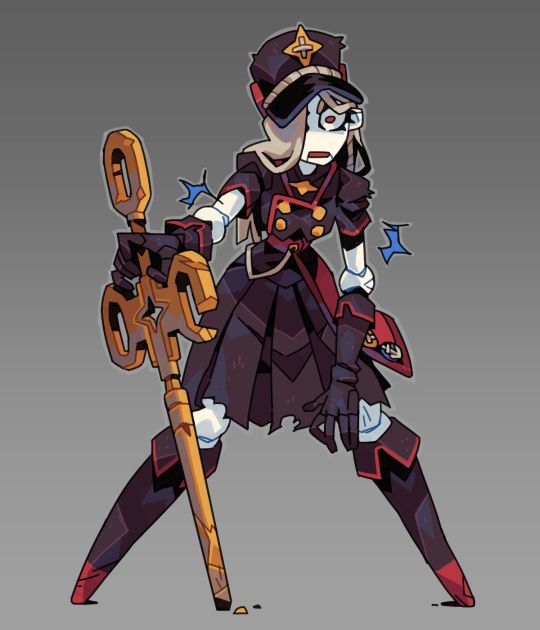
------------------------------------------------------------------------------
#poppy playtime oc#poppy playtime x reader#poppy playtime chapter 2#poppy playtime#oc#my ocs#original character#mommy long legs#huggy wuggy#poppy playtime chapter four#playtime co#bunzo bunny#poppy playtime bunzo#oc art#original story
86 notes
·
View notes
Text
see also that like 90% of stocks are owned by the top 10% so like the whole thing is also unapologetically just a pyramid scheme and possibly also an mlm
Ko-Fi prompt from @kayasurin:
Just rant about the stock market, whatever you want to say about it!
'just rant' is such a prompt for uhhhh my distaste.
LEGALLY NECESSARY DISCLAIMER: I am not a licensed financial advisor, and it is illegal for me to advise anyone on investment in securities like stocks. My commentary here is merely opinion, not financial advice, and I urge you to not make any decisions with regards to securities investments based on my opinions, or without consulting a licensed advisor.
So here are a few things:
1. Stocks are unreliable.
For the layperson, there is nothing that can be done about the direction a stock takes. Unless you are a majority shareholder, or one of several who can work in concert, you cannot affect the direction a company takes, which means you cannot affect the decisions that might cause a stock to increase or decrease in value. This is a rich man's game. The average investor is just along for the ride, god help them.
Between Random Walk Theory, the dart-throwing monkeys study, and the fact that mutual funds do not beat the market, there is just... it's a crapshoot. Anyone who tells you to invest to make a lot of money is drinking the Kool-Aid. You can invest to make a small return, to keep your money in a lot of places in case your bank gets digitally robbed or whatever your worries might be, diversification is good for safety nets, but for pity's sake, don't expect to become a millionaire, and be aware you can lose a lot, even listening to experts.
2. Stocks can be manipulated, and it's ridiculous and stupid and fucks over perfectly normal companies
Do you remember the GameStop reddit thing? I do. If you don't, please take a quick look at this record of the GameStop stock price.
See that spike in 2021? That was Reddit.
This post did a great job explaining it, but you told me to rant, and so I shall.
A large investment company had decided to make a lot of money for their clients by destroying GameStop. They did this by selling more shares than they actually owned (more than actually existed), force the market to absolutely tank the price, with plans to "buy back" the stock once it was dirt cheap, thereby making a profit for their company. This is a common form of stock manipulation called shortstelling, and investors had been doing it to GameStop for years, without the general public noticing.
Except Reddit did notice. And they decided to Fuck It Up, buying up stock at higher and higher prices, forcing the stock price to skyrocket, and the mutual/hedge funds still had to buy them back, but now it was at a massive loss, and it made headlines across the country because of how incredibly ridiculous it was.
The things to note here is that the market can be manipulated without any regard to the actual profits or health of the company, and that attempts to do so can backfire spectacularly.
3. Returns are minimal
There are two ways to earn money on stocks. The first is returns on capital investment; you buy the share at $10, sell it for $20, and you've thus received $10 profit. This is part of the incredibly unreliable bit I mentioned, because you cannot control the direction the stock takes, and generally can't predict it.
The other way is dividends, which like... profits made over the previous quarter (after paying employees, bank loans, rents, etc.) can be either reinvested to grow the company, or paid out to shareholders. But if you invest $150 in a single share of Walmart stock, your quarterly dividend is $2.25, which is $11/yr.
So unless you're investing hundreds of thousands of dollars, or get really lucky with what you choose to invest in, dividends aren't going to get you much of anything.
And when your stocks do give you healthy dividends, it's because there's money left for shareholders! Which, if you remember a few lines back, is left over after paying employees.
If an investor wants a return on their investment, and they can vote to change policy, and policy that pays employees dictates that they get a smaller dividend, do you think that the investors are going to vote to pay their employees fairly?
Yeah, didn't think so.
4. Rapid, Consumptive Growth
There was a really good post recently that described how and why the Chicago School of Economics, colloquially Reaganomics, has completely fucked over the entire US economy by encouraging the absolute worst state for the market to be in, which is seeking eternal parasitic growth. I urge you to read that one if you can, because the bloggers did a good job. Basically, screw Reagan and screw the Chicago school. The economy still would have been a capitalist hellscape without them, but they sure did hasten it!
104 notes
·
View notes
Text
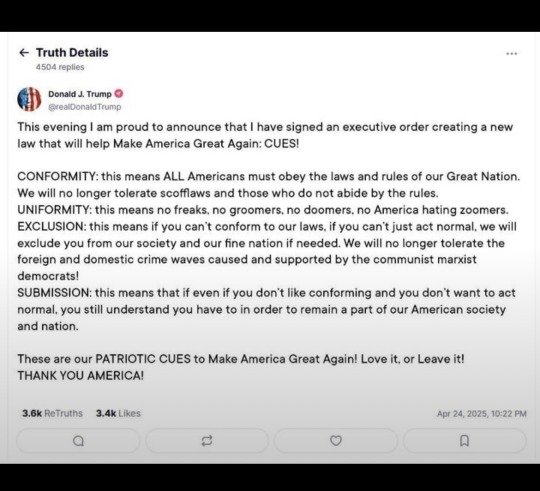
In the ancient times of the Roman republic, 2nd century AD, to celebrate Dionysus and Aphrodite, and to welcome spring becoming summer, Floralia, or the festival of Flora, is the earliest record of practicing mayday.
Throughout the centuries, all across Europe, many cultures have welcomed summer with mayday celebrations of their own. Although traditions vary from region to region, and have changed over time, the overall theme is similar, embracing the warmth and beauty of spring with bonfires, dancing, drinking, feasting and community.
As human civilization moved into the industrial age, a period that saw great prosperity for a few, and exploitation to the many, mayday took on a new persona.
In Paris, 1889 the International Workers Congress called for worldwide solidarity of the working class to demand the 8 hour workday.
In defiance of the robber barons, in the early days of the Gilded age, the United States observed its first participation of the labor movement celebrations of mayday in 1886, protesting for the 8 hour workday and for universal peace with a work stoppage, or general strike.
As you could imagine the so called masters of men, the titans of industry, the robber barons, the tech oligarchs, the hoarders of capital, considered this action of solidarity amongst the working class threatening and unacceptable. Throughout the years there had been much violence and turmoil surrounding the holiday. Mayday is still widely celebrated in Europe as an observation of the worker and the invaluable contribution they give to society through the sweat of their brow, their determination and grit.
Venez m’aider, or in short, m’aider, is the French phrase for, come and help me, or help me. In England in the 1920 the term mayday, an adaptation of m’aider, was adopted for the early air traffic controllers as a distress call, alerting pilots and crew of potential dangers. It has since been a general call for distress
This may 1st hold duel meanings and great significance. Both in the celebration and defence of the working class, and as a signal of dire warning.
The activist group 50501 is continuing their ongoing campaign against oppressive oligarchy, tyrannical rule, American and human rights, with demonstrations beginning May first, or Mayday.
En lieu of Trump’s proposal of CUES, let’s give him, and the fascist surrounding him, a social “cue”, showing our determination, strength and grit. The American people are that of immense resolve, fiery spirit, and insufferable defiance. Perhaps some have forgotten the stubbornness of Americans. Maybe they forgot our opposition to tyranny. it may have slipped some folks recollection of our insistence for freedom, for liberty, for our hard earned rights.
This is both a celebration of the people and a call for general distress to the world.
This Mayday, May 1st, take to the streets. No matter the size of your town or city. Protest oppression and autocracy together with your fellow countrymen (countrypeople) and show that fascism and totalitarianism will not be allowed in the United States of America. As one we are meek, together there is nothing that can stop the power of the American people. Together we stand, divided we fall.
For more information check out, www.fiftyfifty.one or www.maydaystrong.org
We must join in solidarity for liberty, to quote some orange, second rate reality tv personality, wannabe strongman, prick, “or we won’t have a country anymore”
May our nation endure such dark times…
🇺🇸
#trump is a threat to democracy#politics#traitor trump#donald trump#republicans#democracy#news#freedom#free speech#resist fight unite#resist#maga morons#american people#usa#protest#50501#no kings#impeach trump#stop trump#fuck trump#trump administration#tariffs#ukraine#us politics#we the people#maga#republican assholes#gop#gop hypocrisy#bernie sanders
61 notes
·
View notes
Text
Bruce Wayne being the owner of the Daily Planet is just about the only reason I can believe Clark Kent would still have a career as a news reporter. And to be clear, this isn't a joke about his salary (which would probably be decent anyway since he's a senior reporter), but rather a commentary on the compromised integrity of American journalism.
Consider the news surrounding the United Healthcare shooting. The murder of a healthcare company CEO was immediately met with universal public support for the killer. Pretty much everyone in America despises the predatory healthcare system so much that they celebrated Brian Thompson's getting gunned down in the streets of Manhattan as being well-deserved, in spite of major news media trying to paint the bastard as an innocent victim and family man
Literally, the best defense of Thompson's character that they could come up with was that he was a father, husband, and a successful CEO who expanded the company. None of the articles mention that he had been separated from his wife for years. They conveniently leave out that under his leadership, UHC was criticized by the American Hospital Association and used AI to automate claim denials, forcing thousands of people to go without medical care.
The dead are lionized all the time. But this was a man whose life's work was built off the suffering of others and had virtually no good deeds to speak of. And yet the narrative that news reporting is trying to push is that the public joy at his murder is "disturbing" and "ghoulish" and even "un-American" (genuinely the most tone-deaf take I've seen thus far).
And now that Luigi Mangione has been arrested as a suspect in the case, the news have shifted to dissecting his whole life and laying it bare for people to see. He's a well-read and intelligent guy who graduated from an Ivy League college. He's a 26 year old tech bro from a wealthy family and was the valedictorian of his private school. He wrote a review of the Unabomber's book and gave it 4 stars. He had a traumatic back surgery and afterward became depressed and withdrawn. He wrote a manifesto condemning corporate America. He played Among Us (the fact that a major news company published a whole ass article about this is both hilarious and depressing).
Whether Mangione was the killer or not, the media is airing out any and all details of his personal history. But most of the articles I've seen aren't trying to analyze what would have led to an otherwise normal guy to assassinate a healthcare CEO. Because it's obvious to anyone who knows anything about American healthcare. Instead it's all talk about how he was "yelling at the press" and not about what he was yelling ("This is completely unjust and an insult to the intelligence of the American people and their lived experience").
90% of American media is owned by 6 conglomerates. It's in their best interest to diminish sympathy for someone like Mangione, who spoke out against the corporate robber barons. It's in their best interest to make people think he's a radical nutjob, a privileged college snob, a violent right-winger- anything that makes him less relatable to the people who are supporting him. And it's working.
Already we're seeing people across the political spectrum getting hung up on whether Mangione is a hero or not because his cousin is a Republican, his family was wealthy, he was college-educated, he's a cis straight white male, etc. It's worth noting that he hasn't even been extradited from Pennsylvania to New York yet, much less been put on trial or found guilty. And even if he was, his identity is not the point.
We must stop looking at the trees and take a step back to see that the entire forest was planted to prevent us from seeing the palace behind it.
#luigi mangione#united healthcare#ceo assassination#uhc ceo#uhc shooter#uhc assassin#journalism#clark kent#superman#bruce wayne#batman#dc comics#Actually I think Jimmy Olsen currently owns the Daily Planet in comics#but he also would support Clark ethically reporting the truth so#bring back muckrakers we need them more than ever
139 notes
·
View notes
Text
Once again, their definition of fraud is "we don't like it."
This isn't an audit. They haven't proven fraud. This is a robber baron pillaging our government.
74 notes
·
View notes
Text
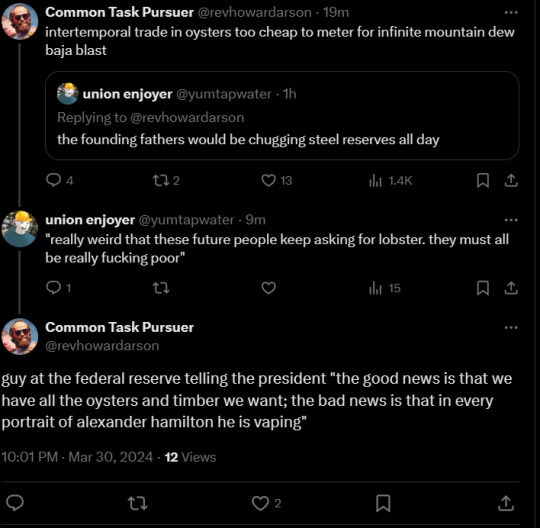
SITUATION In an alternate history where time travel has been invented, a cabal of time-traveling traders and politicians are engaged in intertemporal arbitrage, using their future knowledge to corner markets throughout history. They've recently set their sights on the oyster trade of 19th century New York City, hoping to use their advanced refrigeration tech and insider info to make a killing. But their actions are destabilizing the timeline and threatening to erase key historical figures from existence. The party must unravel this temporal trade network and confront the mysterious mastermind behind it all before irreparable damage is done to the space-time continuum.
SETTING The adventure spans multiple eras, but key events occur in:
New York City, 1842 - The booming oyster trade has made the city the oyster capital of the world. Oyster cellars line Canal Street, shucking a staggering 700 million oysters a year. The docks bustle with oystermen.
The Far Future Oyster Vaults of Neo-Nassau, 2891 AD - Towering refrigerated vaults hold trillions of perfectly preserved bivalves. Chrono-barges zip through pneumatic tubes overhead. Neon-lit canals crisscross the city.
The Temporal Trade Hub, Outside Time - A mind-bending nexus where past, present and future intersect. Causality-defying architecture shifts like a kaleidoscope. Traders haggle over price fluctuations yet to occur.
CAST
Crassus Rockefeller III - Robber baron, mastermind behind the Oyster Futures Syndicate. Seeks to monopolize history's oyster supply. Wields a Causality Anchor that stabilizes him in spacetime.
Vivian "Viv" Wellfleet - Rogue chrono-trader with a heart of gold. Wants to stop Crassus and restore the timeline. Former collegiate oyster shucking champion.
Shucker Jim - Grizzled 19th century oysterman. Secretly an undercover Chronoguard agent. Rocket harpoon prosthetic arm. Loyal but haunted by a tragic past.
The Muculent Sibyl - Prophetic oyster-human hybrid from an alternate timeline where oysters evolved sapience. Whispers maddening future-truths. Chained in Crassus' vault.
Ostreida, the Oyster Goddess - Eldritch bivalve deity worshipped by a future oyster-cult. Seeks to flood Earth's history, returning it to a primordial sea.
The Chronoguard - Temporal law enforcement. Hardened time-cops in chromed exo-suits. Seek to stop illegal intertemporal trade by any means necessary.
The Oystermen's Union - Tough New York oyster workers, their livelihoods threatened by future sabotage. Burly, bearded, and brawny. Know the oyster beds like the back of their callused hands.
INITIAL CONDITIONS The 19th century oyster trade is booming, but prices have started fluctuating wildly and oyster shortages loom due to temporal meddling. Anachronistic tech has been found in oyster beds. Strange future-cultists lurk in oyster cellars, preaching the coming of an Oyster God. The Chronoguard has dispatched agents to 1842 to investigate, but Crassus' syndicate has a head start and deep pockets. The timeline is already fraying at the edges - historic oyster-lovers like Queen Victoria are fading from existence. The players arrive in old New York to find a temporal powder keg ready to blow.
GOALS
Crassus Rockefeller III - Corner the oyster market across all of history, making trillions. Ascend to economic godhood.
Vivian "Viv" Wellfleet - Stop Crassus, restore the original timeline, save the future. Maybe shuck some oysters along the way.
Shucker Jim - Complete his mission, avenge his partner, keep the space-time continuum safe from rogue traders and their greed.
The Muculent Sibyl - Escape her imprisonment, reveal cosmic truths, bring about the Oyster Singularity her visions foretell.
Ostreida, the Oyster Goddess - Flood Earth's history, make the world a oyster's paradise. Destroy upstart humanity.
The Chronoguard - Arrest Crassus and his cronies, stop the temporal trade in its tracks, preserve the integrity of the timeline.
The Oystermen's Union - Protect their way of life, drive out strange future interlopers, keep oyster prices stable and bellies full.
TOOLS/RESOURCES
Crassus Rockefeller III - Vast wealth, future tech, Causality Anchor, bribed officials across eras, oyster futures contracts.
Vivian "Viv" Wellfleet - Heirloom chrono-compass, knack for disguise, knowledge of oyster lore, her trusty quantum-shucking knife.
Shucker Jim - Rocket harpoon arm, Chronoguard combat training, 19th century street smarts, loyal oystermen contacts.
The Muculent Sibyl - Precognition, psychic whispers, eldritch oyster magic, fanatical mollusk-hybrid cultists.
Ostreida, the Oyster Goddess - Divine bivalve powers, oyster monster hordes, tidal magic, beachhead temples across history.
The Chronoguard - Jurisdiction across spacetime, stun-harpoons, chrono-cuffs, hardened exo-suits, orbital trawler-ships.
The Oystermen's Union - Strength in numbers, intricate knowledge of oyster beds, sturdy oyster boats, shucking solidarity.
SAMPLE SOLUTIONS
Infiltrate Crassus' syndicate posing as fellow traders, destabilize his operations from within while searching for evidence of his crimes. Coordinate with Chronoguard to arrest him in a dramatic sting.
Rally the Oystermen's Union to sabotage future tech and resist the Syndicate's strong-arm tactics. Stage a general strike to force the city to crack down on rogue traders.
Beat Crassus at his own game by cornering the oyster market first. Flood the market with your own supply via time travel, tanking prices and ruining his monopoly.
Cut a deal with Ostreida, brokering a compromise where oysters and humans can coexist across history. Use her power to threaten Crassus into surrendering.
Rescue the Muculent Sibyl and convince her to aid you with her prescient visions. Navigate the fluctuating timeways to always stay one step ahead of Crassus and his goons.
258 notes
·
View notes
Note
As if I needed more black pills to swallow before the end of the year, and to really solidify my future plans to move out. There will be so much to unfuck for the remainder of the century, and I fear the senate dems really sealed the fate on this country
Its just so..........and here's the thing!! As others have pointed out it was a lose-lose and there are some good reasons that the dems who voted in the senate did what they did, but we are just going to be in a world of hurt for the foreseeable lol. I hope all the Nay votes in the house and senate really take senate leadership to task and also that Biden gets to watch Schumer be walked out of the room lmao
But take heart! Worse and more deeply entrenched evils have been beaten back before in this country, and we are all the living proof! The pace of shock and awe WILL abate and the chickens WILL start coming home to roost - even more than they already are. Trump and Musk are already losing support from the broader base and other Republican operatives and its been like what? 6 weeks? Im not here to shame any decisions, do what you need to do to stay safe but I'm still on team We Must Confront This Here And Now In Order To Be Truly Free - 4 year spans in this country saw independence, the end of slavery (well) & the confederacy, bush 2.0 to Obama, robber barons to the new deal. Lets gird our loins for the losses and repressions, but we will NEVER yield! THE UNION! FOREVER! THE SECOND RECONSTRUCTION! THE EFFORTS OF ALL WHO CAME BEFORE US TO DILIGENTLY AND STEADILY CHIP AWAY AT INJUSTICE AND TO CLEANSE THE SINS OF THIS GUILTY NATION!
31 notes
·
View notes